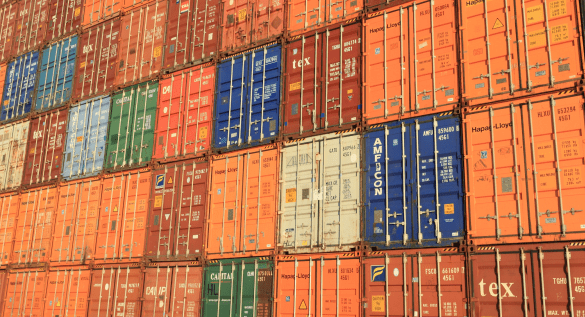Introduction
When it comes to international trade and shipping, understanding the various terms and abbreviations used in contracts is crucial. FOB and EXW are two of the different Incoterms that can be used for international shipments. To decide whether FOB or EXW is the most appropriate Incoterm to use and to ensure that you understand what is covered by them, you first need to know the difference between FOB (Free On Board) and EXW(Ex Works) and what these terms mean.
If you use the FOB Incoterm, the seller or originator has to get your goods loaded onto your chosen ship before responsibility for the shipment passes to you. If you use the EXW Incoterm, all the seller or originator has to do is provide you with a pickup location, and make the goods available for you to collect, load and transport yourself.
FOB (Free On Board)
FOB stands for “Free on Board,” and this Incoterm makes the seller of the goods responsible for all associated costs and risks up until the point that the goods are loaded onto the ship. When the goods are then appropriated to the contract or clearly set aside or otherwise identified as the contract goods, the seller’s responsibilities end. The key characteristics of FOB include:
Risk and Cost Responsibility: With FOB, the seller is responsible for the goods and their associated costs (including transportation, insurance, and customs duties) until the goods are loaded onto the vessel or other specified mode of transportation at the named port of shipment. Once loaded, the responsibility and risk shift to the buyer.
Shipping Point: FOB is followed by the name of the port where the goods will be loaded.
Freight Charges: The buyer is responsible for arranging and paying for the transportation of the goods from the named port of shipment to their final destination.
This places the responsibility on the seller of the goods to get them onto the buyer’s ship in accordance with the departure port’s normal procedures, and to arrange clearance for export.
When that is done, responsibility for the shipment falls to the buyer – including the bill of lading fees, insurance, shipment and onward transport costs, export clearance, unloading, and everything else after that point.
EXW (Ex Works)
EXW stands for “Ex Works” and this Incoterm requires the originator or seller of the goods to make them available to their buyer at a named place – like the seller’s own warehouse or factory.
The buyer then has to arrange their collection and onwards transit. This Incoterm places the minimum responsibility on the seller of the goods, and the maximum responsibility on the buyer.
If you’re not sure which Incoterm is the most appropriate or cost-effective for you, let us know and we’ll provide you with the advice you need to make the right decision.
Choosing Between FOB and EXW
The choice between FOB and EXW depends on various factors, including your business goals, your familiarity with the supplier, and the nature of the goods being shipped. Here are some considerations to help you decide:
Buyer’s Experience: If you have a good understanding of the local shipping and logistics in the seller’s country, EXW may be a suitable option. However, if you are less experienced in international trade, FOB could provide more security and predictability.
Risk Tolerance: FOB places a significant portion of the risk on the seller until the goods are loaded on the vessel. If you want more control over the shipping process and are comfortable with taking on more risk, EXW might be preferable.
Cost Management: FOB often requires the seller to manage and pay for the logistics until the goods are loaded on the ship. If you want to have more control over shipping costs, EXW allows you to negotiate and manage transportation expenses directly.
Supplier Relationships: If you have a strong, established relationship with your supplier and trust their handling of the goods, you may be more inclined to choose EXW. FOB can be a better option if you are less certain about the supplier’s capabilities.
Conclusion
FOB and EXW(Ex works) are important international shipping terms that define the division of responsibilities and costs between buyers and sellers in international trade. Choosing between these terms should be based on your specific needs, risk tolerance, and familiarity with the supplier. Understanding the differences between FOB and EXW can help you make informed decisions and ensure a smoother international trade process.
